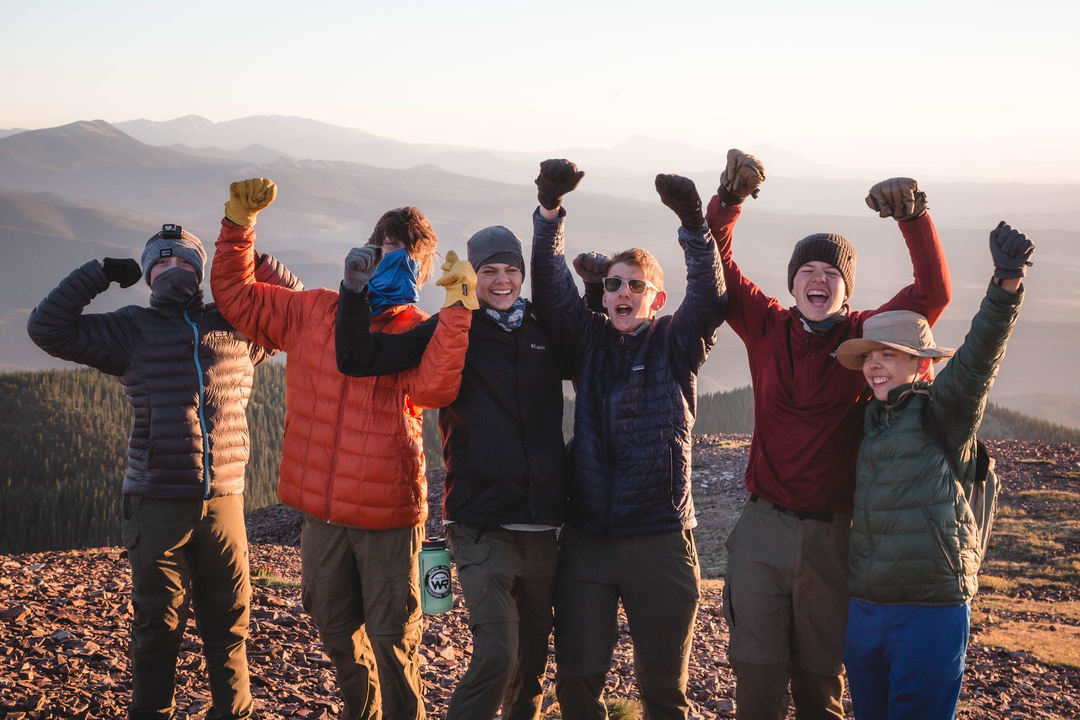Scouting may be a solution to improving the mental health crisis our youth is experiencing today
By Andy Price, CEO of the Grand Canyon Council, BSA
Putting down your phone and picking up a backpack may help with the mental health crisis many of our youth are facing today.
According to the CDC, children and teens now spend an average of eight to nine hours in front of a screen every day, which can cause sensory overload and increase risk of attention deficit disorders, anxiety, and depression. Extended screen time negatively impacts mental health by decreasing the child’s opportunities for social connection and amount of time spent outdoors. Limited experiences in nature disproportionately affect children causing long-term developmental consequences.
BSA’s Cub Scouts and Scouts BSA programs encourage boys and girls to socialize, learn new skills, and participate in outdoor adventures such as hiking and canoeing. Those involved in Scouting have access to amazing outdoor programs and activities that allow children and their families to participate in outdoor exercise and character development, as well as form lasting bonds.
Discussing mental health care and offering preventative actions to mitigate the effects and symptoms of anxiety and depression has also been shown as a proven solution to significantly decrease the risk of youths experiencing mental health issues. Scouts BSA takes a hands-on approach to ensuring all who are involved in Scouting have access to supportive tools and resources if they are struggling with mental health.
Girls and boys involved in Scouting (as well as their leaders)are also taught Psychological First Aid, to teach them to be cognizant of stress in others who may be struggling with mental health, as well as signs of mental fatigue and stress within themselves. Teaching boys and girls how to provide basic care, comfort, and support for themselves and others encourages higher awareness and connectedness and teaches important awareness of when to seek a qualified caregiver or professional.
Many BSA councils, including GCC, take it one step further and offer on-site psychology services at camp, like Camp Geronimo outside of Payson, Ariz., as a resource for Scouts and Scout leaders. Scouting encourages open conversations about mental health while creating an environment with positive mentor and peer relationships.
GCC, which delivers BSA’s Scouting programs throughout most of Arizona, is focused on teaching young people how to be prepared for life. Still, Scouting goes beyond helping the individual; parents and other family members also benefit from Scouting.
Now more than ever, families have very little free time together. Most children are involved in several activities at a time and there continues to be a rise in families where both parents are employed full-time. A recent study conducted by Frontiers in Psychology concluded that parental accompaniment is crucial to a child’s well-being and has a direct impact on academic performance.
Family-friendly activities are offered by GCC, and local Scout troops. There are numerous opportunities for parents to work with each child directly on skills and badges as well as outdoor activities like hiking and camping where families can have fun together. Scouting offers these inclusive formal and informal activities at a level suitable for all ages. It provides a place for the entire family to be connected and surrounded by a community of like-minded people.
Additional research, conducted by the Journal of Epidemiology and Community Health, revealed adults who were involved in Scouting as kids were significantly less likely to develop mood or anxiety disorders as adults. This study also concluded that children who grew up in a low-income family, but participated in Scouting, reduced or, in many cases, eliminated the likelihood of developing mental health issues caused by the challenges of growing up in a lower socioeconomic background as adults.
Participation in organizations like Scouting is imperative to helping minimize mental health issues amongst our youth today. Supporting your child or teen’s mental health must also be encouraged by the community – schools, families, doctors and youth programs.
Switching your phone to silent mode and lacing up your athletic shoes and going for a hike doesn’t hurt, either.
Visit www.scouting.org to learn more about how BSA’s efforts to minimize mental health issues among young people can help prepare them for life.






